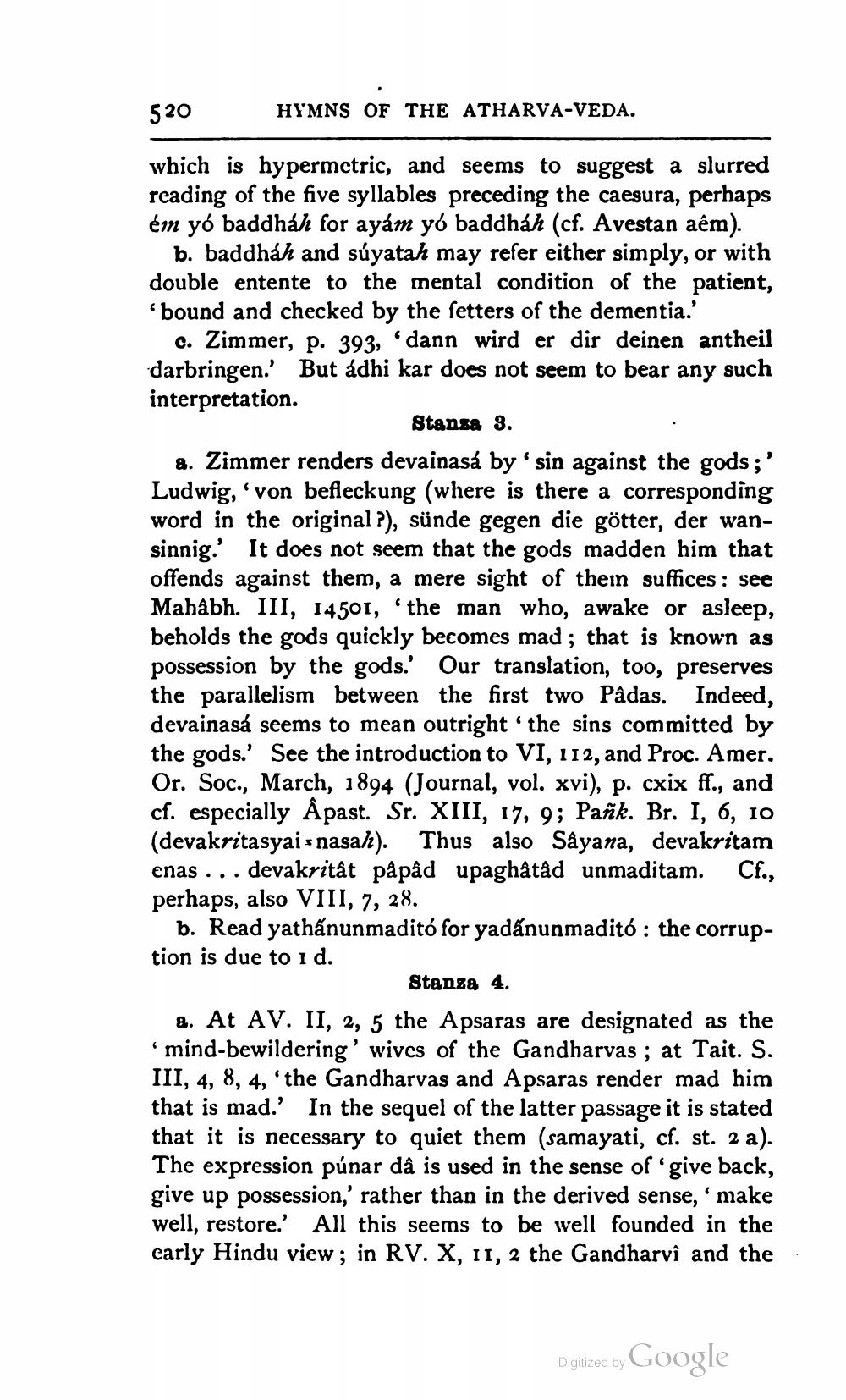________________
520
which is hypermetric, and seems to suggest a slurred reading of the five syllables preceding the caesura, perhaps ém yó baddháh for ayám yó baddhák (cf. Avestan aêm).
b. baddháh and súyatah may refer either simply, or with double entente to the mental condition of the patient, 'bound and checked by the fetters of the dementia.'
c. Zimmer, p. 393, 'dann wird er dir deinen antheil darbringen.' But ádhi kar does not seem to bear any such interpretation.
HYMNS OF THE ATHARVA-VEDA.
Stanza 3.
a. Zimmer renders devainasá by 'sin against the gods;' Ludwig, 'von befleckung (where is there a corresponding word in the original ?), sünde gegen die götter, der wansinnig.' It does not seem that the gods madden him that offends against them, a mere sight of them suffices: see Mahâbh. III, 14501, 'the man who, awake or asleep, beholds the gods quickly becomes mad; that is known as possession by the gods.' Our translation, too, preserves the parallelism between the first two Pâdas. Indeed, devainasá seems to mean outright 'the sins committed by the gods.' See the introduction to VI, 112, and Proc. Amer. Or. Soc., March, 1894 (Journal, vol. xvi), p. cxix ff., and cf. especially Âpast. Sr. XIII, 17, 9; Pañk. Br. I, 6, 10 (devakritasyai nasak). Thus also Sâyana, devakritam enas... devakritât påpâd upaghâtâd unmaditam. Cf., perhaps, also VIII, 7, 28.
b. Read yathanunmaditó for yadánunmaditó: the corruption is due to 1 d.
Stanza 4.
a. At AV. II, 2, 5 the Apsaras are designated as the mind-bewildering' wives of the Gandharvas; at Tait. S. III, 4, 8, 4, 'the Gandharvas and Apsaras render mad him that is mad.' In the sequel of the latter passage it is stated that it is necessary to quiet them (samayati, cf. st. 2 a). The expression púnar dâ is used in the sense of 'give back, give up possession,' rather than in the derived sense, ' make well, restore.' All this seems to be well founded in the early Hindu view; in RV. X, 11, 2 the Gandharvî and the
"
Digitized by
Google




